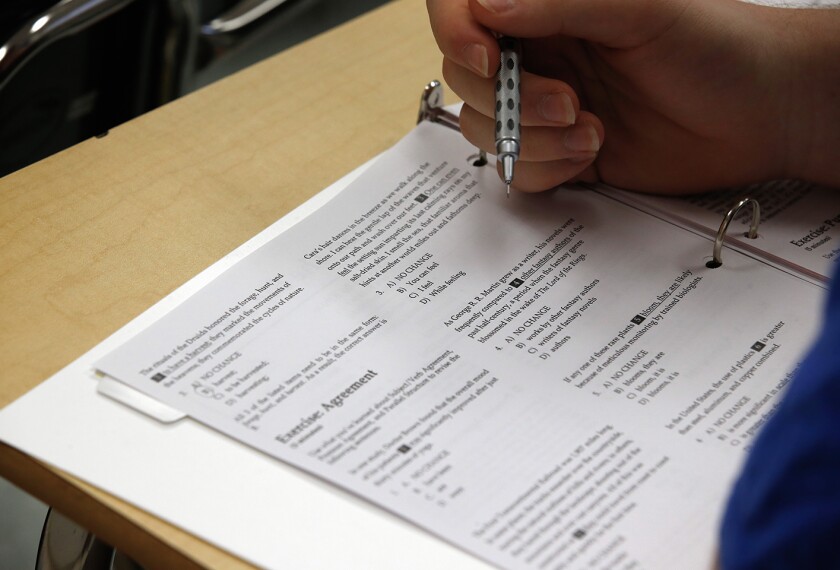A newspaper editor who published the content of six standardized tests used by the Chicago public schools violated copyright law, a federal appeals court has ruled. Still, the court said such information can be reproduced in similar forums, provided publishers show it is “necessary.”
The case, reviewed by the U.S. Court of Appeals for the 7th Circuit, addressed the merits of the action of George N. Schmidt, the editor of Substance and a former Chicago teacher, who reprinted high school social studies and English assessments in full in 1999. He contended that the documents were public and that he had the right to do so under the First Amendment.
U.S. Circuit Judge Richard Posner disagreed. He wrote in the 3-0 decision issued Dec. 31 that Mr. Schmidt had a right to criticize the exams, but had not adequately proved he needed to publish the entire documents in order to clarify the point in an accompanying editorial.
"[H]e does not have the right ... to destroy the tests by publishing them indiscriminately, any more than a person who dislikes Michelangelo’s statute of David has a right to take a sledgehammer to it,” Judge Posner wrote.
The decision reaffirmed that of a U.S. District Court, which handed a win to the Chicago school board last year. “This is a significant victory for anyone who is involved in test and material development,” said Nancy Laureto, the associate general counsel for the 438,000-student Chicago school system. Mr. Schmidt said he was outraged by the decision. “I’m going all the way to the [U.S.] Supreme Court, with all due respect,” he said last week.
He must file an appeal within 90 days.
Wresting Control?
Mr. Schmidt published a critique of the exams, along with the full content of several social studies and English tests, shortly after they had been given to 100,000 high school students. The aim was to allow readers to come to their own conclusions about the assessments, the editor said last week.
He said he had fully intended to showcase the science assessments in the following edition of Substance, whose audience includes education professionals among a wider audience, and had wanted to follow up with other sections of the test.
“It is literally the right of the public to see if [the exams are] appropriate and to discuss it,” the editor said.
But the school board argued that such an action was an infringement of copyright law. An injunction was issued, and Mr. Schmidt was ordered to stop publishing the material.
The exams, which were used from 1998 to 2003, were at that time part of a three-year-long pilot, the plaintiffs stated in court documents. When Mr. Schmidt printed the information, he spoiled the pool of test questions, they charged.
The security breach cost the district $400,000 and set back the pilot project one full year, as new test questions had to be developed, Ms. Laureto said.
The district sued Mr. Schmidt and Substance, and asked for $1.4 million in damages. Even though the lower court ruled in favor of the school board, it ordered Mr. Schmidt to pay only $500. He appealed.
In the meantime, Mr. Schmidt was fired from his district job in August 2001 after 28 years in the Chicago public school system.
Judge Posner’s opinion strongly backed the school board.
“If Schmidt wins this case, it is goodbye to standardized tests in the Chicago public school system,” the judge wrote. “Schmidt, his allies, and the federal courts will have wrested control of educational policy from the Chicago public school authorities.”
Since the decision was handed down, the editor’s allies have contributed about $1,000 so far to take the case to the U.S. Supreme Court.
“People,” Mr. Schmidt said, “are saying, ‘Please don’t give up.’”




